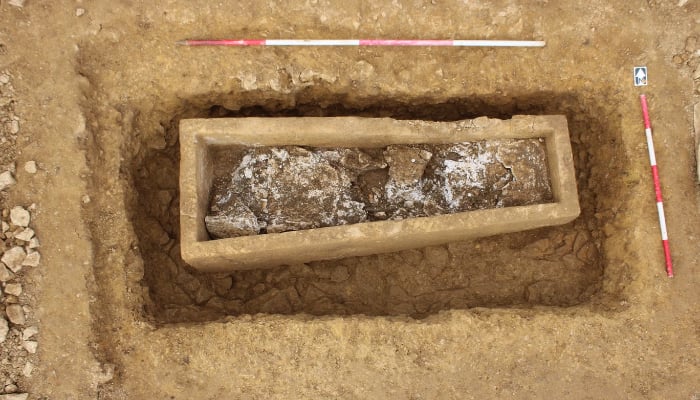
University of New York researchers have uncovered a Roman-era secret cemetery of a “high-status individual” in England.
According to Independent, archaeologists have discovered a secret cemetery that contains a stone coffin carved with a single solid limestone block, encased in liquid gypsum at its centre.
Scientists said that this burial method helped in preserving some imprints of the deceased person, usually used for the important people.
Archaeologists from the University of York said, “For reasons archaeologists do not entirely understand, the Romans sometimes poured liquid gypsum, a mineral used in making various types of cement and plaster, over the clothed bodies of adults and children in lead or stone coffins before burying them.”
The cemetery found ahead of highway construction work in Cambridgeshire is believed to be from the Roman era between 42 AD and 410 AD.
The researchers have found an impression of a shroud and pieces of fabric stuck in the gypsum. They have also recovered a glass vessel, fragments of leather, pottery shreds, and animal bone from the gypsum fragments.
Moreover, further excavation revealed more important graves in the cemetery with precious items, including jewellery.
One of the graves in the southwest of the central stone coffin is suspected to be of a 16-20-year-old young woman with many valuable items, including a pair of silver earrings and 9 copper bracelets placed near her feet.
Researchers are optimistic that further post-excavation analysis would help in getting the answers to their questions and finding the individual stories of people buried there.















